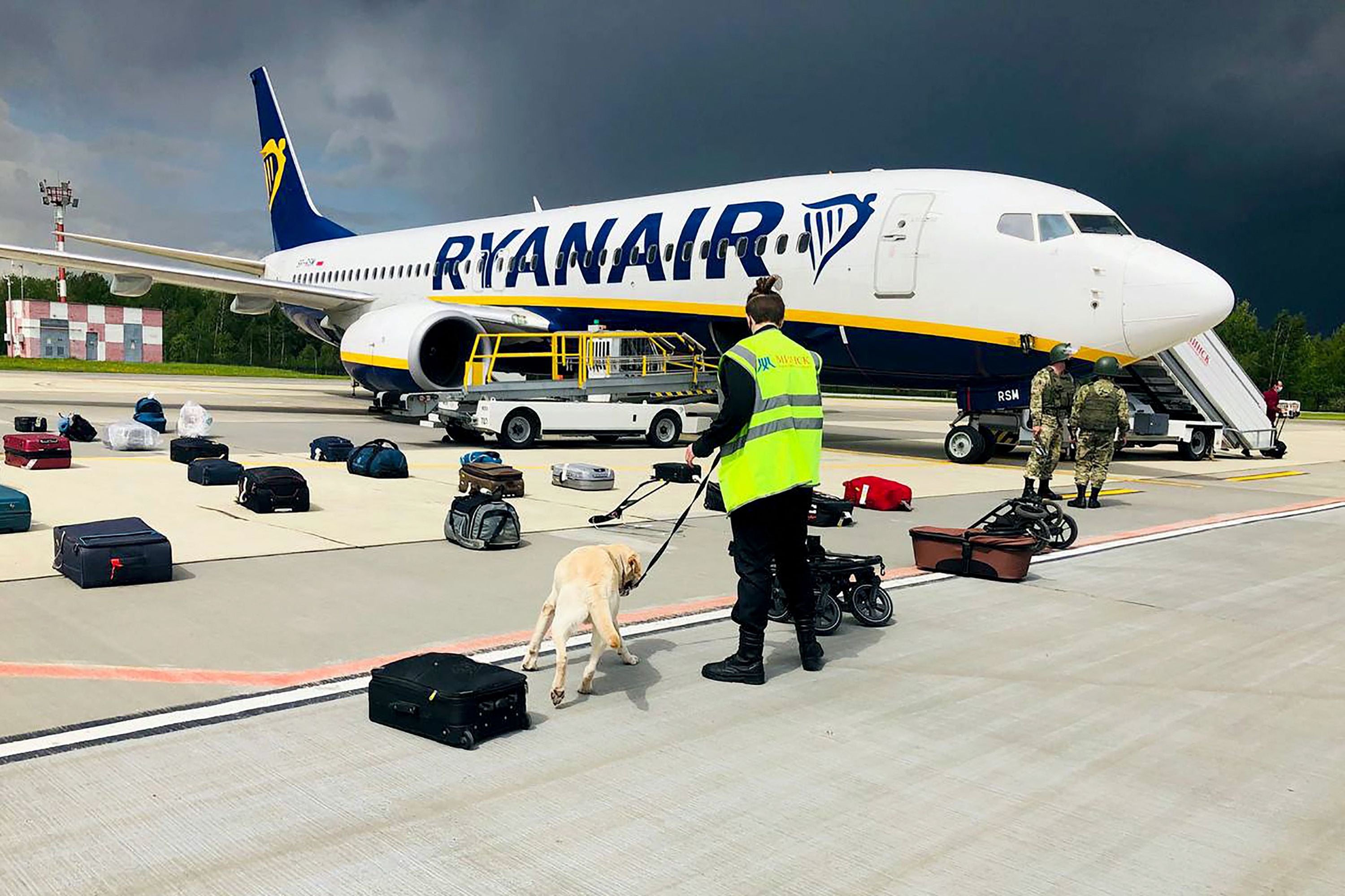The ‘hijacking’ of the Ryanair flight is what we get by turning a blind eye to authoritarian regimes
The work of human rights defenders and journalists in Belarus has to be protected – we need more than strong words


The brazen arrest of a journalist, intercepted on a flight between Greece and Lithuania, is an extreme act of lawlessness even by the lawless standards of Belarus. This dangerous crime did not, however, come in a void.
The detention – condemned as a hijacking by European leaders – by Alexander Lukashenko’s government is both shocking and, at the same time, unsurprising.
President Lukashenko has taken an axe to basic human rights in Belarus for many years, and especially in the past nine months. All evidence indicates that the opposition clearly defeated Lukashenko in elections last August. The European Union, the UK and others all refused to accept the official results. But Lukashenko, in power for the past 27 years, was happy to ignore those declarations.
He felt safe in the knowledge that, based on past experience and with Moscow ready to protect him, the global indignation would pass. Violence – amid accounts of torture – has been used to crush peaceful protests against the electoral theft since then.
All of which should normally mean a robust international response. Instead, we have seen an eagerness to move on from what is happening in Belarus in what has often been described as “Europe’s last dictatorship”.
Dominic Raab, the UK foreign secretary, was right to condemn Belarus’s “outlandish actions” in seizing Roman Protasevich when his plane was forced to land in Minsk after claims of a “bomb threat” – which, it appears, was for the express purpose of illegally seizing him.
Ursula von der Leyen, president of the European Commission, said that the actions were “utterly unacceptable” and “will have consequences”. Those words are welcome, if there is follow-through. But it is impossible to ignore the disturbing tweet from the EU transport commissioner, Adina-Ioana Valean, after the diverted flight left Belarus for its intended destination of Vilnius: “Great news for everyone, especially the families and friends of people on board.” It needs no hindsight to say that the commissioner’s statement was revealing in its failure to consider the fate of Protasevich, and the embattled Belarus opposition more broadly.
Protasevich, who immediately understood exactly what the diversion meant, was said to be shaking when it was announced that his flight would land in Minsk. He was reportedly heard to say: “I’ll get the death penalty here,” as he was led away. Opposition leader Svetlana Tikhanovskaya told Sky television she is afraid that Protasevich is being tortured. “We are afraid not just for his freedom but for his life.”
We have seen a familiar pattern: the European Union, the UK and others have been eager to get on with “business as usual”, once the protests of recent months and the accompanying repression fell out of the international headlines.
From the perspective of the UK and the European Union alike, “pragmatism” too often comes to the fore. Belarus’s immediate neighbours, Poland and Lithuania – both of which saw tanks on the streets and suffered Kremlin-led repression of peaceful democratic protest in past decades – have been vocal in demanding tough action, following the seizing of Protasevich.
Despite all the current noise and fury, however, and despite the in-plain-sight lies and violence from Lukashenko’s regime for the past nine months, current EU sanctions are in fact less stringent than they were in previous years.
Despite its apparently thick skin, the Lukashenko regime cares deeply about the headlines. Much of the energy of the Belarus authorities, following the Russian playbook, has gone into seeking to ensure that information about repression and resistance alike can no longer easily be gathered and shared with the outside world.
Protasevich has played a key role in ensuring that people inside and outside Belarus know what is happening in the country. Last week saw the closure of Tut.by, the country’s largest independent news portal, and the arrest of key journalists there. These actions should not happen in darkness.
The courage of human rights defenders and independent journalists in Belarus in the past year has been remarkable. This latest act of lawlessness has – briefly, at least – catapulted Belarus back into the world headlines. But politicians should not just feel impelled to act when singular lawlessness has pushed a human rights crisis onto the front page. The ongoing repression is bad not just for Belarus. If left unchallenged, the implications of this wholesale trampling of the rule of law are bad for the world.
Steve Crawshaw, a former East Europe Editor of The Independent, is policy and advocacy director at Freedom from Torture
Join our commenting forum
Join thought-provoking conversations, follow other Independent readers and see their replies
Comments
Bookmark popover
Removed from bookmarks